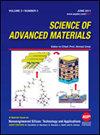Evaluation Method for Seismic Toughness of Steel Frame Buildings with Buckling Constraint Braces Based on the Whole Construction Process
IF 0.9
4区 材料科学
引用次数: 0
Abstract
As a common building structure, steel frame building is of great significance in seismic design and construction in earthquake areas. However, the traditional steel frame structure is brittle under earthquake, which is prone to buckling instability and serious damage. Therefore, taking the whole construction process as a parameter index, the buckling-restrained brace-steel frame structure is strengthened, and different seismic waves are selected as seismic input to analyze and study its seismic capacity under earthquake action. The research results show that: (1) The steel frame with buckling-restrained braces still has strong seismic toughness when there is a large stiffness loss in the earthquake; (2) The base shear curve of building buckling-restrained brace-steel frame in X direction increases exponentially; (3) Buckling-restrained brace-steel frame has high shear force shared by columns and axes in X direction under strong earthquake, which can effectively realize the function of secondary protection; (4) The short duration of strong earthquake has little influence on the hysteretic energy consumption ratio, while the damage of the long duration of strong earthquake to the building buckling restrained brace-steel frame increases with the increase of strong earthquake duration; (5) Buckling restrained brace-steel frame has good deformability and can adapt to earthquake load through plastic deformation基于施工全过程的带屈曲约束支撑的钢结构建筑抗震韧性评估方法
钢结构建筑作为一种常见的建筑结构,在地震灾区的抗震设计和施工中具有重要意义。然而,传统的钢框架结构在地震作用下比较脆,容易产生屈曲失稳,破坏严重。因此,以整个施工过程为参数指标,对屈曲约束支撑钢框架结构进行加固,并选取不同的地震波作为地震输入,分析研究其在地震作用下的抗震能力。研究结果表明(1) 当地震刚度损失较大时,屈曲约束支撑钢框架仍具有较强的抗震韧性;(2) 建筑屈曲约束支撑钢框架在 X 向的基底剪力曲线呈指数增长;(3) 屈曲约束支撑钢框架在强震下 X 向柱轴分担的剪力较大,可有效实现二级保护功能;(4)短历时强震对滞回耗能比影响较小,而长历时强震对建筑屈曲约束支撑钢架的破坏随强震历时的增加而增大;(5)屈曲约束支撑钢架具有良好的变形能力,可通过塑性变形适应地震荷载。
本文章由计算机程序翻译,如有差异,请以英文原文为准。
求助全文
约1分钟内获得全文
求助全文
来源期刊

Science of Advanced Materials
NANOSCIENCE & NANOTECHNOLOGY-MATERIALS SCIENCE, MULTIDISCIPLINARY
自引率
11.10%
发文量
98
审稿时长
4.4 months
 求助内容:
求助内容: 应助结果提醒方式:
应助结果提醒方式:


